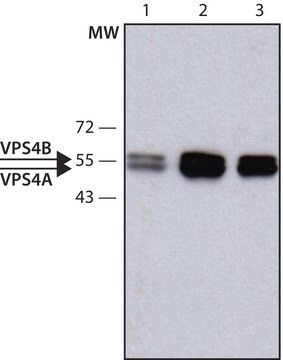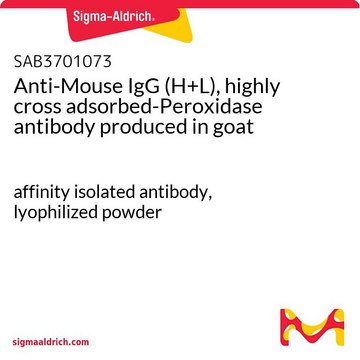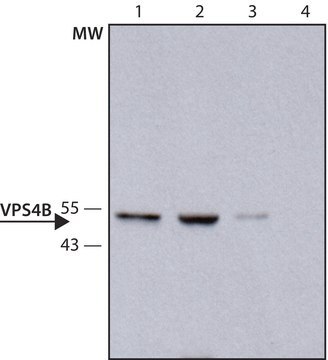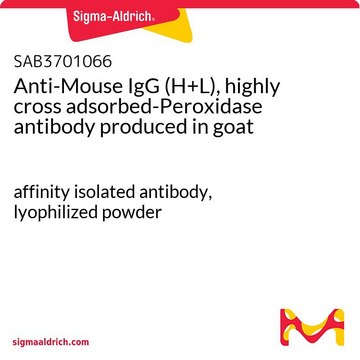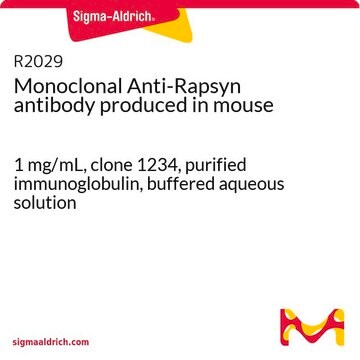SAB4200215
Anti-VPS4A antibody, Mouse monoclonal
clone VPS4-110, purified from hybridoma cell culture
Sinónimos:
Anti-SKD1, SKD1A, SKD2, VPS4-1, Anti-Vacuolar protein sorting factor 4A, Anti-hVPS4
About This Item
Productos recomendados
biological source
mouse
conjugate
unconjugated
antibody form
purified from hybridoma cell culture
antibody product type
primary antibodies
clone
VPS4-110, monoclonal
form
buffered aqueous solution
mol wt
antigen ~50 kDa
species reactivity
mouse, canine, bovine, human, rat
concentration
~1.0 mg/mL
technique(s)
immunoprecipitation (IP): suitable
western blot: 1-2 μg/mL using whole extracts of mouse 3T3 or human HEK-293 cells.
isotype
IgG1
UniProt accession no.
shipped in
dry ice
storage temp.
−20°C
target post-translational modification
unmodified
Gene Information
human ... VPS4A(27183)
mouse ... Vps4a(116733)
rat ... Vps4a(246772)
Categorías relacionadas
General description
Application
- immunoblotting
- immunoprecipitation
- immunolabelling
Biochem/physiol Actions
Physical form
Disclaimer
¿No encuentra el producto adecuado?
Pruebe nuestro Herramienta de selección de productos.
Storage Class
12 - Non Combustible Liquids
wgk_germany
WGK 1
flash_point_f
Not applicable
flash_point_c
Not applicable
Elija entre una de las versiones más recientes:
Certificados de análisis (COA)
¿No ve la versión correcta?
Si necesita una versión concreta, puede buscar un certificado específico por el número de lote.
¿Ya tiene este producto?
Encuentre la documentación para los productos que ha comprado recientemente en la Biblioteca de documentos.
Nuestro equipo de científicos tiene experiencia en todas las áreas de investigación: Ciencias de la vida, Ciencia de los materiales, Síntesis química, Cromatografía, Analítica y muchas otras.
Póngase en contacto con el Servicio técnico